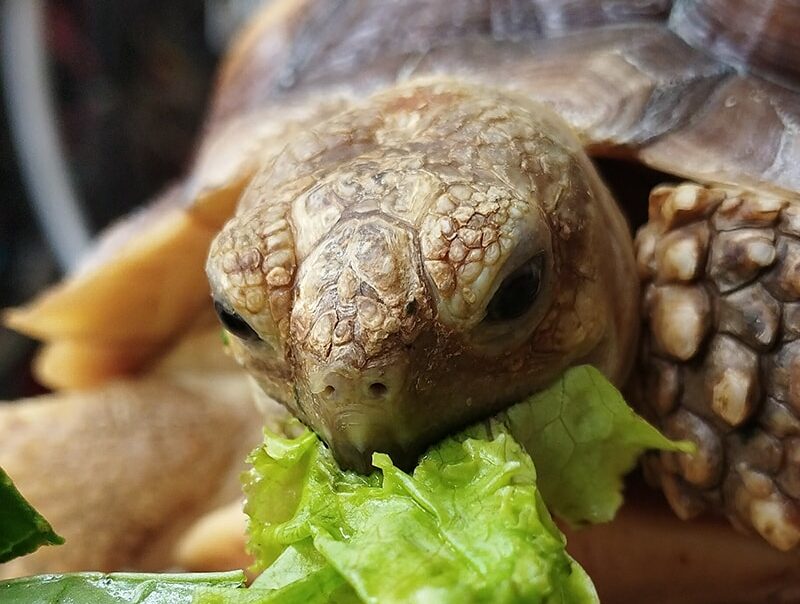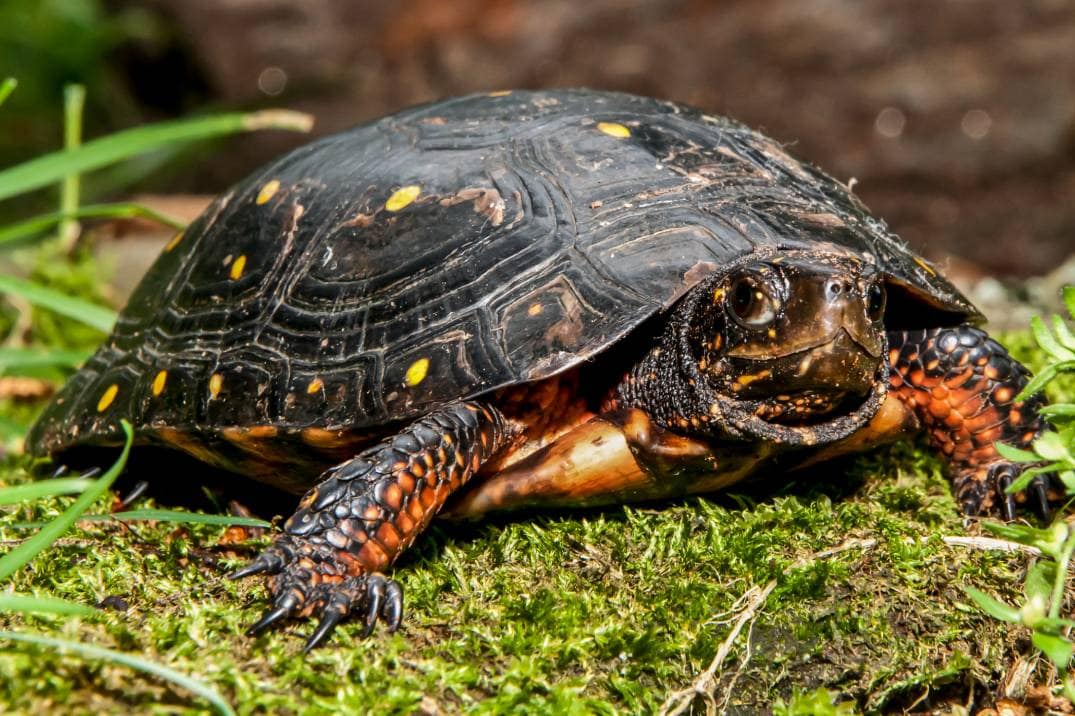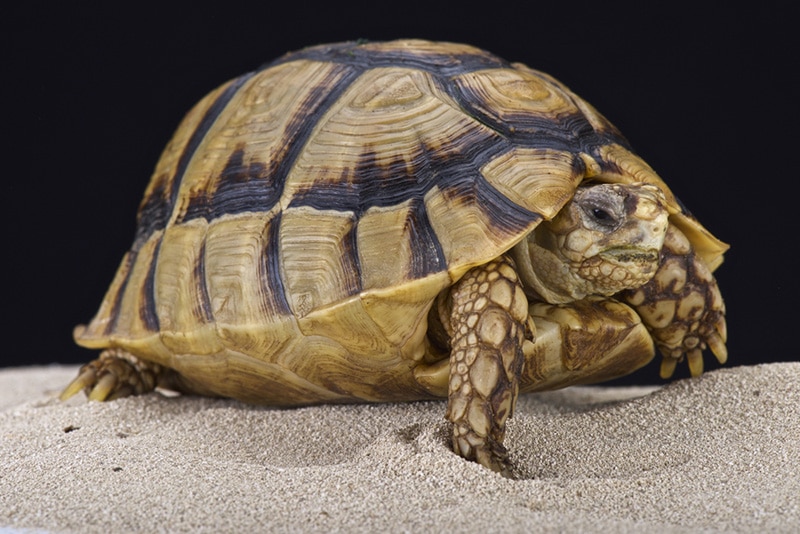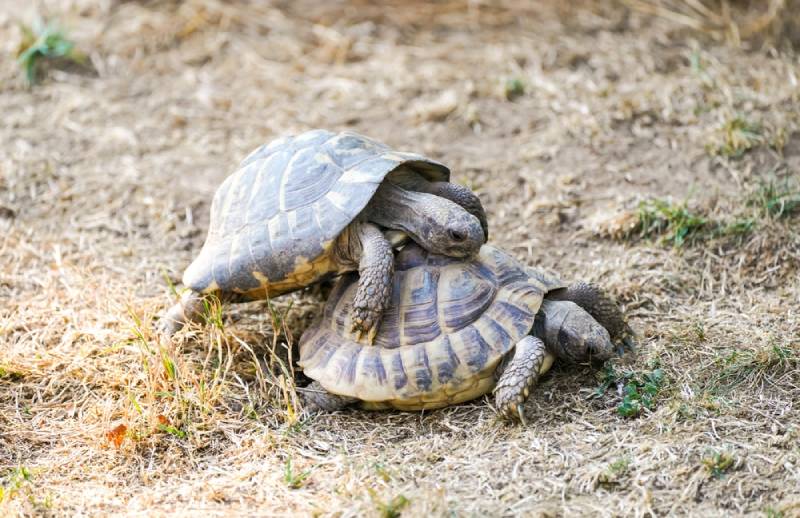Can Tortoises Eat Lettuce? Vet-Reviewed Nutrition Facts & FAQ
Updated on

To stay healthy, tortoises should eat a variety of plant-based foods. Many tortoises are picky eaters, so it’s important to try different, safe plants to find the ones they’ll eat consistently. As part of a balanced diet, tortoises can eat some types of lettuce.
Keep reading to learn which lettuces are okay for tortoises and which you should avoid. We’ll provide a general overview of the basic tortoise diet, including other plants they can eat. You’ll also learn how to feed your tortoise and lower the chances that they’ll pick and choose what they want to eat.
What Lettuces Can Tortoises Eat?

Tortoises should eat primarily dark, leafy greens, which contain plant protein, vitamins, minerals, and fiber. Several types of lettuce fall into that category, but romaine is the best lettuce to feed your tortoise.
Red and green leaf lettuce are also okay for your tortoise to eat. However, you should avoid feeding iceberg lettuce. It is mostly water and offers little nutritional value to your tortoise.
Why Do Turtles Need to Eat a Variety of Foods?
Each plant-based food your tortoise eats offers a slightly different nutrient profile. Some are higher in protein, while others contain more vitamins and minerals. The more foods your tortoise eats, the better the chances of meeting all their nutritional needs.
Tortoises may develop a taste for one food over another and ignore some that provide valuable nutrition. To avoid nutritional deficiencies, rotate the ingredients you offer frequently and give multiple options at each meal.
What Other Greens Can Tortoises Eat?
Greens should make up about 80% of your tortoise’s diet, and it’s important to know your options. In addition to lettuce, here are some other greens to try:
- Kale
- Bok choy
- Collards
- Dandelion
- Alfalfa sprouts
- Mustard greens
- Broccoli leaves
Wash all greens thoroughly before feeding, and don’t offer spoiled or wilted food.
What Other Foods Should Tortoises Eat?

The other 20% of your tortoise’s diet should come from vegetables and fruit, 10% of each. Edible flowers such as roses, geraniums, and hibiscus also fall into this category. You can grow your flowers to ensure they’re free from pesticides and fertilizer, which can be dangerous to tortoises. Some safe fruits and vegetables for tortoises include:
You can feed red, yellow, and orange fruits and vegetables to your tortoise. They contain more Vitamin A, which is an essential nutrient for tortoises.
How to Feed Your Tortoise
As we mentioned, all food should be washed before offering it to your tortoise. Cultivated flowers should be free of any pesticides or fertilizers. Tortoises are experts at picking out the tastiest foods they’re offered and ignoring the rest, which can put them at risk of nutritional deficiencies.
To prevent that, chop all greens, vegetables, and fruit into similar size pieces and mix them into a salad. This precaution makes it more difficult for tortoises to identify and consume specific foods. Tortoises generally need to take calcium and vitamin supplements. Talk to your veterinarian to determine which products are best and how much your tortoise should take.

Conclusion
Tortoises can eat romaine and leaf lettuce as part of a varied and balanced diet. However, iceberg lettuce should be avoided due to its low nutritional content. Along with providing a safe, comfortable enclosure and the right lighting, a healthy diet is essential. Nutritional deficiencies can cause a variety of medical conditions. Speak to your veterinarian about the right diet for your tortoise species and ensure your pet gets regular checkups.
Featured Image Credit: Jef Wright, Unsplash












